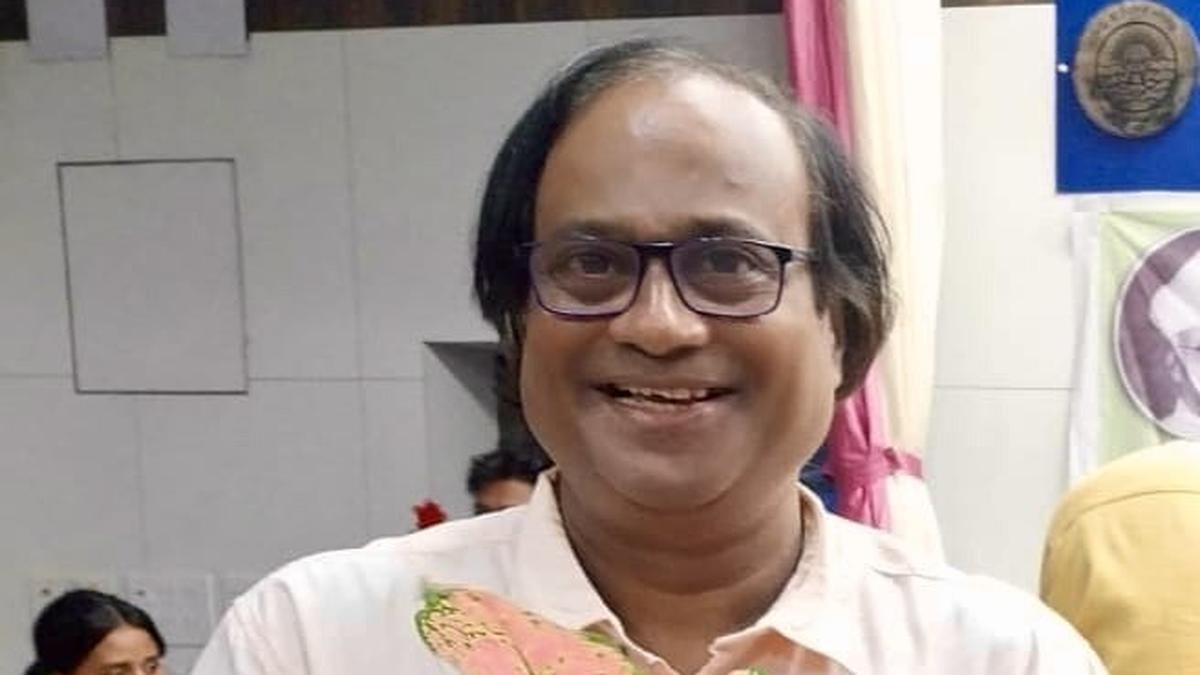
The college principal who serves as a bridge between Bengal’s Dalit literature and the world
The Hindu
Jaydeep Sarangi, academic and poet, passionately amplifies Dalit voices in Bengal through literature, translation, and activism.
Professionally, Jaydeep Sarangi is an academic — he is the principal of New Alipore College in Kolkata — but he also has a passion, a sort of parallel profession, and that is to carry Dalit voices of Bengal to the world outside, be it India or abroad, through literature.
Dr. Sarangi, who is a published and well-anthologised poet with 10 collections in English, the latest being Memories of Words, has probably translated more works of Dalit writers in Bengal than anyone else, in all having translated, edited, and written 20 books so far on Dalit subjects. He has interviewed several Dalit authors and published them in foreign journals — something that ignited interest in Dalit studies — and, through lectures and seminars, familiarised scholars and students with writers from different Dalit communities in Bengal.
“It’s a journey that actually began in Australia, more than 20 years ago, when I came in close contact with many aborigine authors and activists there. I met many representatives of the Stolen Generation. Some of them are still my good friends; one of them is Ali Cobby Eckermann. All this contributed to my early interest in Dalit studies. Later on, it became my passion,” Dr. Sarangi, 50, said.
“I was fortunate to be familiar with Arjun Dangle, Sharankumar Limbale, Bama, Manohar Mouli Biswas, Kalyani Thakur, Kapil Krishna Thakur, Harish Mangalam, Nirav Patel, Basudev Sunani and many others, who are an integral part of my identity. Their social commitments, political engagements and love for their community togetherness taught me new and fresh ways to look at things in our society,” he said.
Dr. Sarangi, since he was born in Jhargram, grew up as a follower of tribal culture. “I developed empathy for all. I read Annihilation of Caste by B.R. Ambedkar when I was in Class XI. I still remember how the book made me feel differently. My closest friend in Jhargram had strong lineage to socialism. We used to subscribe to Soviet Desh, which formed my senses and sensibilities during my childhood. These days Dalit activists/authors are very much part of my identity as a scholar. I believe that working with Dalit subjects involves activism; not dry and amateurish scholarship,” he asserted.
His most recent works include Sahitya Akademi-published A Life Uprooted: A Bengali Dalit Refugee Remembers (translation, done with Mandakini Bhattacharya, of Shikarchera Jivan by Jatin Bala). According to him, it is a chilling account of life in refugees camps. Another translation, done with Zinia Mitra, is Poems of Chandalini, a collection of 51 poems by Dalit womanist Kalyani Thakur Charal. Yet another, published by Routledge and done along with Basudhara Roy, is The Sociological Self as Palimpsest: Caste, Class, Religion and Gender in the Select Writings of Bama.
According to him, Dalit writing, said to be more than 100 years old, is rich and aesthetically satisfying and a delight to read. Translation, he said, began very late in Bengal, and the past two decades had seen a sharp rise in the number of committed translators.













